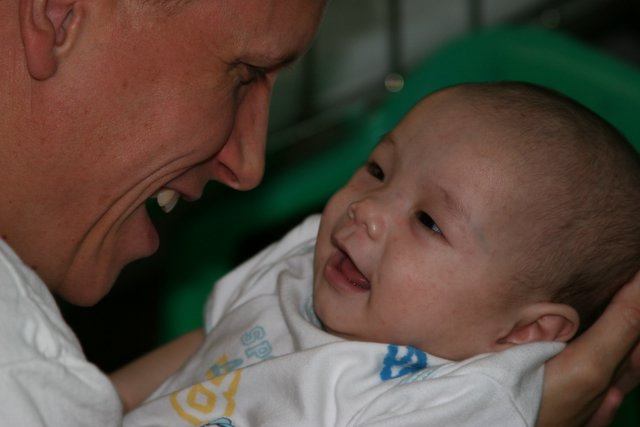
Katie and I finally go to go to Soweto. She'd been there before but I hadn't. Soweto's probably the first thing anyone should do that visits Joburg. Soweto is short for "Southwestern Township" also "So Where To?" - the ghetoo the blacks in Joburg were forced into in the run-up to Apartheid. More importantly, it's where Nelson Mandela lived in the years before he was put in prison, and where the members of the ANC plotted and schemed to get their rights. It's the epicenter of the dawn of South African civil rights.
We went to the Hector Pietersen Memorial (he's the boy that was shot and became the poster child - literally - for the global sanctions against the South African government), Nelson Mandela's home (then, not now), Wandee's (sp? "real African food" really not very good), and for a walk around a real township (the African euphemism for shantytown).
I think for most people, a walk through a township is a real eye-opening and potentially life-defining experience. We got to go into one of the small corrugated huts and talk to a couple of Xhosa women with a baby (shown above), ask them questions, and see how they live.
The township experience is set in the backdrop of a day of learning about Apartheid. I think many people define the township as a relic of Apartheid. As I learned about the Apartheid years, I felt sorrow for the atrocities committed by whites against blacks. However, I had a different take on the township. You see I've been there before.
I've met, loved and taught so many people in abject circumstances that don't know what Apartheid is. I've sat on their floors, eaten a few morsels of their humble dinner, talked with them and learned from them. I don't believe the poverty I see is a relic of Apartheid. Katie saw more extreme poverty in Haiti, I've seen it in Costa Rica and Mexico, and I'm sure you'd see it in any country south of the Sahara. The people of South Africa are not unusually poor - unfortunately, poverty is not unusual at all. They've suffered unusually. They've been treated unequitably. They were once trodden upon. But that is not the source of South African poverty, only its disparity.
Today I feel for the people living in the townships. I feel for them as I feel for any that live in such poverty and struggle to rise above. I feel for them as they try to find a few rand to feed their children, without speaking English, without clothes and transportation. But I also feel for them because they have to live life believing that this is their legacy - that Apartheid did this to them. That has to be very disabling. As crippling as poverty can be, it seems it is far more crippling when it destroys hope because one believes that it is a legacy, something handed down and must be suffered, if not with anger then at least with resolution - misplaced resolution - not the sort of resolution that moves one's family out of the townships, but the sort of resolution that takes fate as it is unquestioningly.
I understood a different sort of resolution on the drive home as Trust told us about his family, about how his father was beaten and killed by members of the Mugabe regime. As an 11 year old boy Trust watched his dad slowly die of his injuries and then lived with a resolve to take care of his family. That's the sort of resolution I can most admire. The gospel eventually gave Trust the peace to leave the anger behind and the satisfaction that his father awaits him and is well-pleased. How beautiful to see the stark contrast of different resolutions.
I've made a few of my own.






3 comments:
dead on. we can all resolve to be better. I am grateful that I get to live "vicariously" through your blogs, it is helping me keep a much needed perspected in my very abundantly blessed daily life. Thank you.
well said!
I just hope that no matter how often I see it I remember these are real people living real lives, I don't want it to become "commonplace" to witness poverty first hand.
Post a Comment